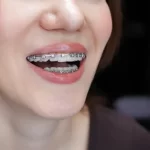Orthodontic treatment is not just for adults. In fact, addressing dental issues at an early age can lead to lifelong benefits for children. Early intervention in orthodontics allows for timely correction of common dental problems, ensuring proper dental development and setting the stage for a healthy and confident smile. In this article, we will explore the significance of orthodontic treatment for children and the advantages of early intervention.
The Importance of Early Orthodontic Intervention
Early orthodontic intervention focuses on diagnosing and treating dental issues in children before they become more severe. By addressing these problems at a young age, orthodontists can guide the growth and development of the jaws and teeth, leading to improved dental health and overall well-being. Let’s delve into the key reasons why early intervention is crucial:
1. Preventing and Correcting Dental Problems
Early orthodontic treatment helps prevent and correct dental problems that may arise during childhood, such as:
- Malocclusion: Malocclusion refers to the misalignment of teeth or improper positioning of the jaws. It includes bite problems like overbite, underbite, crossbite, and open bite. Timely intervention can prevent these issues from worsening and ensure proper alignment of the teeth and jaws.
- Crowding: Crowding occurs when there is insufficient space in the mouth for all the teeth to erupt properly. Early treatment can create space and guide the teeth into their appropriate positions, minimizing the need for more extensive interventions later on.
2. Facilitating Proper Jaw Growth and Development
During childhood, the jaws are still growing and developing. Early orthodontic intervention can help guide this growth and correct any imbalances or abnormalities. By influencing jaw development at an early stage, orthodontists can improve facial aesthetics, correct jaw discrepancies, and enhance overall facial harmony.
3. Enhancing Oral Health and Function
Orthodontic issues can impact oral health and function. Misaligned teeth can make oral hygiene more challenging, leading to a higher risk of cavities, gum disease, and other dental problems. By addressing these issues early on, orthodontic treatment improves oral hygiene and facilitates proper dental function, reducing the likelihood of future complications.
“Early intervention in orthodontics can prevent dental problems from worsening, guide jaw development, and promote optimal oral health and function in children.” – Discover more about the importance of early orthodontic treatment.
Orthodontic Treatments for Children in New Orleans
Orthodontic treatments for children aim to correct dental issues and guide the growth and alignment of the teeth and jaws. Here are some commonly used treatments:
Two-Phase Orthodontic Treatment: Specialized Care for Young Patients
Two-phase orthodontic treatment is a comprehensive approach that addresses specific problems in two stages. The first phase usually begins during childhood when a mixture of primary and permanent teeth are present. This phase focuses on guiding jaw growth and creating space for permanent teeth to erupt properly. The second phase, which occurs later when all permanent teeth have erupted, involves further alignment and fine-tuning. Two-phase treatment can optimize results and reduce the need for more invasive procedures in the future. Learn more about this specialized care on our Two-Phase Orthodontic Treatment page.
Braces for Teens and Kids: Traditional Approach for Comprehensive Correction
Traditional braces are a tried and tested orthodontic treatment option for children. They involve attaching metal brackets to the teeth and connecting them with wires. Regular adjustments guide the teeth into their proper positions, correcting bite problems and aligning the jaws. Braces are effective in addressing a wide range of orthodontic issues and can be personalized to meet each child’s unique needs. To learn more about braces for children, visit our page on Braces for Teens and Kids.
Retainers: Maintaining Results for Long-Term Benefits
Retainers play a vital role in orthodontic treatment for children. After the active phase of treatment, retainers help maintain the achieved results and prevent teeth from shifting back to their original positions. Retainers can be removable or fixed, depending on the child’s specific needs. To understand the importance of retainers and their maintenance, visit our page on Retainers.
Beginning the Orthodontic Journey for Your Child
Taking the first step towards orthodontic treatment for your child is easy. Schedule their first visit to an orthodontist, where a comprehensive examination will be conducted to assess their dental health and identify any existing issues. To learn more about what to expect during the first visit, explore our article on First Visit.
Throughout the orthodontic journey, you may have questions or seek further information. Our Orthodontics FAQ page provides answers to commonly asked questions, offering valuable insights and guidance.
To schedule an appointment or get in touch with our team, please visit our Appointment Request page or contact us directly via our Contact Us page.
Conclusion
Early orthodontic intervention in children brings lifelong benefits, including prevention and correction of dental problems, guidance of proper jaw growth, and enhancement of oral health and function. By addressing orthodontic issues at an early age, parents can set their children on the path to a healthy and confident smile. Take the first step today and provide your child with the gift of a lifetime: a beautiful and well-aligned smile.
“Invest in your child’s dental health and future with early orthodontic intervention. Discover the transformative benefits of early treatment and start your child’s journey towards a lifelong beautiful smile.” – Contact us today to explore the possibilities of orthodontic treatment for your child.



